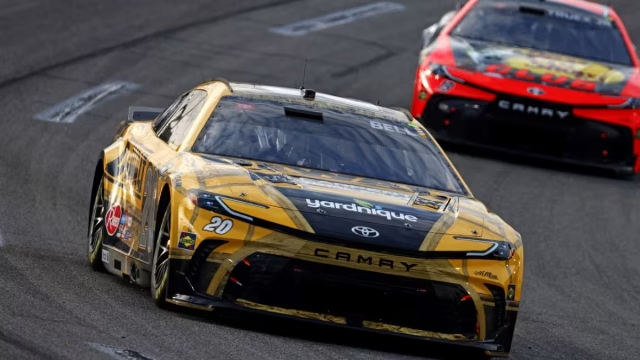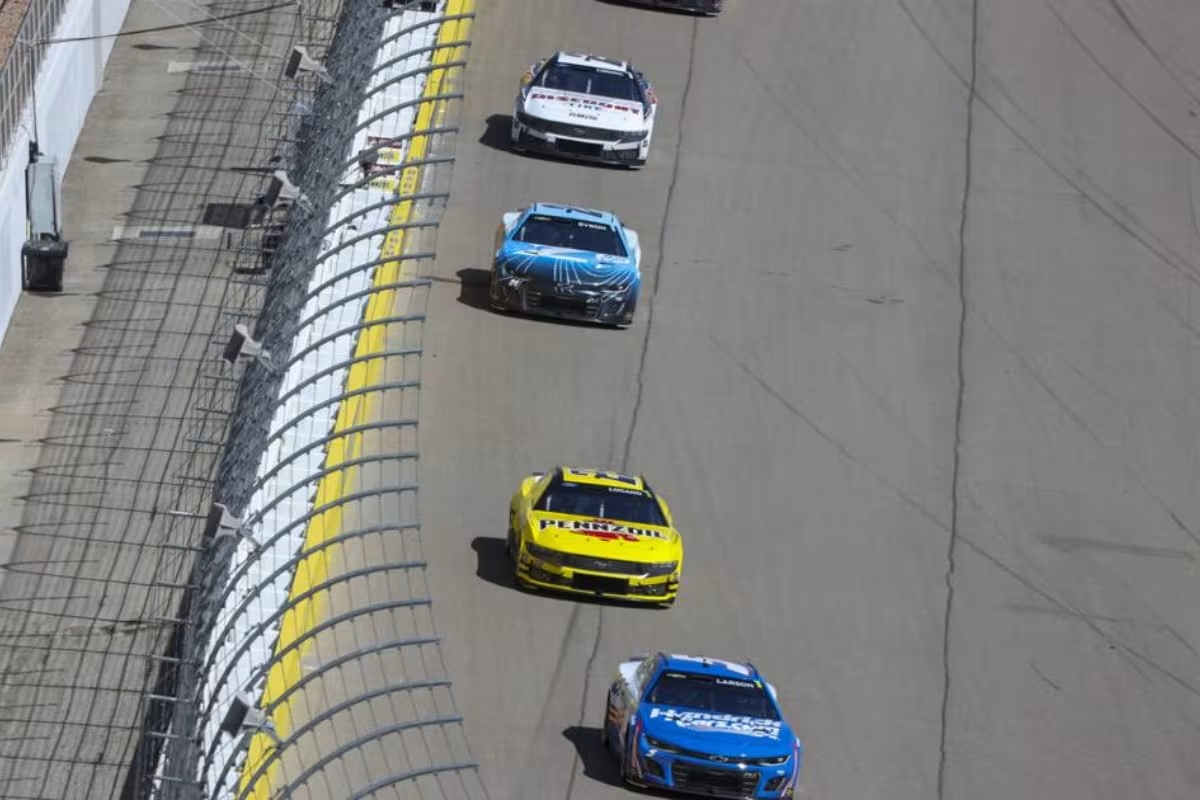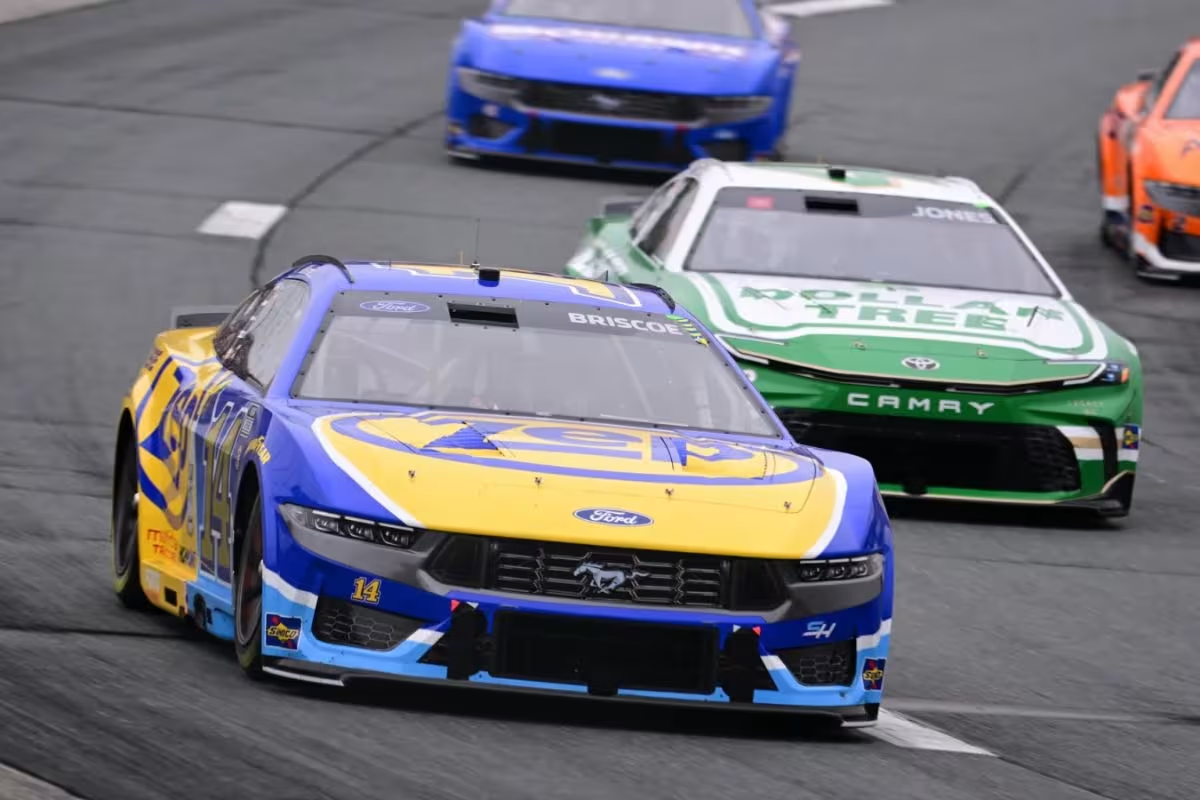JGR Prioritizing Sponsors Over Winners: NASCAR Fans are increasingly frustrated with JGR‘s recent driver selections, which appear to prioritize sponsorship deals over actual performance. The promotion of young talent like William Sawalich signals potential, yet the controversy surrounding his primary sponsor raises questions about rise in NASCAR. Ryan Truex’s struggles for a full-time seat highlight the detrimental effects of financial dependency on driver opportunities, despite his proven skills.
Key Highlights
- NASCAR Fans are frustrated with JGR’s driver selections, feeling sponsorship influence overshadows talent and performance metrics in NASCAR.
- The promotion of 18-year-old William Sawalich raises concerns about meritocracy in driver selections amid financial pressures from sponsorships.
- Ryan Truex’s limited opportunities despite talent exemplify the challenges drivers face in securing seats without substantial sponsorship backing.
- Recent signings like Brandon Jones and Taylor Gray have intensified skepticism over JGR’s commitment to performance over financial interests.
- The ongoing financial dynamics may redefine driver selection criteria, potentially impacting NASCAR fan engagement and loyalty to the sport.
Financial Dynamics in NASCAR Sponsorships
In recent years, the financial dynamics of NASCAR sponsorships have increasingly shifted, disclosing a striking reliance on external funding that constitutes a significant portion of race teams’ revenues. Figures as per source, external partners account for nearly 65-80% of a race team’s annual earnings in 2024. This heavy dependence on sponsorships raises critical questions about the integrity of competition and the prioritization of financial backing over pure racing merit.
As NASCAR prepares to introduce a new $7.7 billion media rights deal, anticipated to enhance media revenues by 40% for chartered organizations starting in 2025, the distribution of these funds remains opaque. The uncertainty surrounding how much of this influx will reach other National Touring Series is concerning.
This ambiguity compounds the strain on drivers to secure personal sponsorships, which are increasingly necessary for obtaining competitive rides. For instance, despite Ryan Truex’s notable performance, his inability to secure sufficient funding has left him without a full-time seat. In contrast, emerging talents like William Sawalich, supported by strong sponsorship backing, find themselves prioritized over proven winners.
These financial dynamics suggest a troubling trend within NASCAR, where sponsorship dollars may overshadow talent and performance, leading to NASCAR fan disillusionment. As the sport evolves, the balance between financial viability and competitive integrity will be paramount, raising critical ethical considerations that stakeholders must navigate to preserve the essence of racing.
William Sawalich’s Promotion at JGR
William Sawalich’s promotion to the full-time driver of the #18 Xfinity Toyota at Joe Gibbs Racing (JGR) marks a noteworthy milestone in the ongoing progression of NASCAR’s competitive landscape. At just 18 years old, Sawalich embodies the youthful vigor that teams increasingly seek in a driver, especially given his impressive track record of 18 wins in 39 starts in the ARCA series. This rise is indicative of a broader trend within NASCAR, where teams are exploring fresh talent to remain competitive in an constantly changing arena.
However, the decision to boost Sawalich also raises pertinent questions regarding JGR’s tactical direction. With Sheldon Creed departing to the Haas Factory Team, JGR’s choice to promote an emerging talent like Sawalich may reflect both an investment in the future and an opportunity to rejuvenate their brand identity.
ARCA East champ William Sawalich, who makes his Xfinity debut this weekend for JGR, will drive the JGR No. 18 Xfinity car full time in 2025. Starkey, the hearing aid company founded by his grandfather, will be his primary sponsor.
— Bob Pockrass (@bobpockrass) October 21, 2024
Sawalich’s official statement, expressing gratitude and enthusiasm to learn, resonates with the aspirations of many young drivers. Yet, it simultaneously invites scrutiny over whether such promotions are grounded in meritocracy or corporate strategies focused on sponsorship and marketability.
”I am honored to be driving the No. 18 full-time in the Xfinity Series next year… It has been really cool to drive for Joe Gibbs Racing, and I feel like I have developed so much as a driver over the past two years. I still have a lot to learn, especially with moving to a new series, so I am looking forward to taking this next step in racing.” – William Sawalich
Concerns Over Sponsorship-Driven Decisions
Amid the excitement surrounding William Sawalich’s promotion, concerns are surfacing about the implications of sponsorship-driven decisions within Joe Gibbs Racing (JGR). The recent announcement of Sawalich’s primary sponsor, Starkey, a company led by his father, raises eyebrows about the integrity of driver selection processes. This scenario is not isolated; it reflects a broader trend at JGR where financial incentives appear to overshadow performance metrics.
The pattern is alarming, particularly when considering the recent signings of Brandon Jones and Taylor Gray. While talent should ideally dictate opportunities, the influence of sponsorship deals seems to prevail. This shift provokes a critical examination of the criteria used for driver placements, raising questions about meritocracy in a sport that thrives on competitive excellence.
NASCAR Fans are increasingly vocal, arguing that such sponsorship-driven decisions undermine the competitive spirit of NASCAR. As JGR continues to prioritize monetary relationships over proven racing abilities, the integrity of the sport may be compromised, leading to disillusionment among its most dedicated followers. The call for transparency and fairness in driver selections has never been more pressing, as the line between sponsorship and success becomes increasingly ambiguous.
Ryan Truex’s Struggle for a Full-Time Seat
Facing an uphill battle for a full-time seat, Ryan Truex’s aspirations in NASCAR highlight the clear contrast between talent and the harsh realities of sponsorship dependency. Despite securing two wins and three top-10 finishes in limited opportunities, Truex’s quest for a permanent position remains fraught with challenges. His older brother, Martin Truex Jr., poignantly articulated the dilemma: “As of now, he really has nothing.” This encapsulates the nature of a driver’s career, where merit is often overshadowed by financial backing.
“He is really working hard to try and figure some things out. It really boils down to sponsorship and what can you bring to the table. He is really working hard at that and is still doing his sim work and everything he does behind the scenes for his real job, and trying to put something together for Xfinity. We’ve got a few people that he is talking to, but nothing is done yet so we will see how it plays out.” – Martin Truex Jr.
Key factors emphasizing Truex’s struggle include:
- Sponsorship Reliance: NASCAR’s current landscape increasingly prioritizes funding over raw talent.
- Limited Opportunities: With few seats available, competition intensifies among capable drivers.
- Family Legacy Strain: Carrying the Truex name adds both visibility and expectations.
- Behind-the-Scenes Work: Truex’s commitment to sim work and networking highlights his dedication.
- Uncertain Future: Conversations about potential deals are ongoing but yield no guarantees.
NASCAR Fan Reactions to the Situation
The disappointment among NASCAR fans regarding Ryan Truex’s limited opportunities in NASCAR highlights a broader frustration with the sport’s sponsorship-driven environment. As fans grapple with the dichotomy of talent versus financial backing, social media has become a battleground for expressing these sentiments. Many have taken to platforms like Twitter to voice their concerns, revealing a complex web of emotions tied to driver selections.
“I love it when talent trumps mo4ney. Good on the kid for digging deep and fighting for this opportunity.”
“And yet Truex remains without a ride. Money talks.” – fans reaction
While some rally behind Truex, emphasizing his proven track record as a two-time ARCA East Series champion, others celebrate the ascension of William Sawalich, framing it as a victory of talent. However, skepticism looms, with critical voices lamenting the prevalence of financially motivated selections over meritocratic ones.
“Ryan Truex should be in the car full time if they want someone with talent.”
“I know sponsorship but like, he deserves it,”
“Another bought ride, no talent needed, just money.” – fans reaction
As the NASCAR landscape continues to evolve, the outcry from fans reflects an underlying truth: the balance between sponsorship and genuine talent remains a contentious issue. The anticipation surrounding Truex’s upcoming performance serves as a litmus test—will his skill ultimately shine through the shadows of financial disparity? Only time will tell.
News in Brief: JGR Prioritizing Sponsors Over Winners
The prioritization of sponsorship over merit in driver selections at JGR raises important concerns regarding the integrity of competition in NASCAR. Financial dynamics increasingly influence decisions, potentially sidelining deserving talent in favor of lucrative sponsorships.
The struggles of drivers like Ryan Truex highlight the consequences of these choices, fueling dissatisfaction among NASCAR fans. Ultimately, the ongoing tension between commercial interests and competitive fairness necessitates a critical examination of the values that underpin the sport’s future direction.
ALSO READ: Joe Gibbs Racing and FedEx Partnership at Risk as 4 Billion Dollars Cuts Approach



